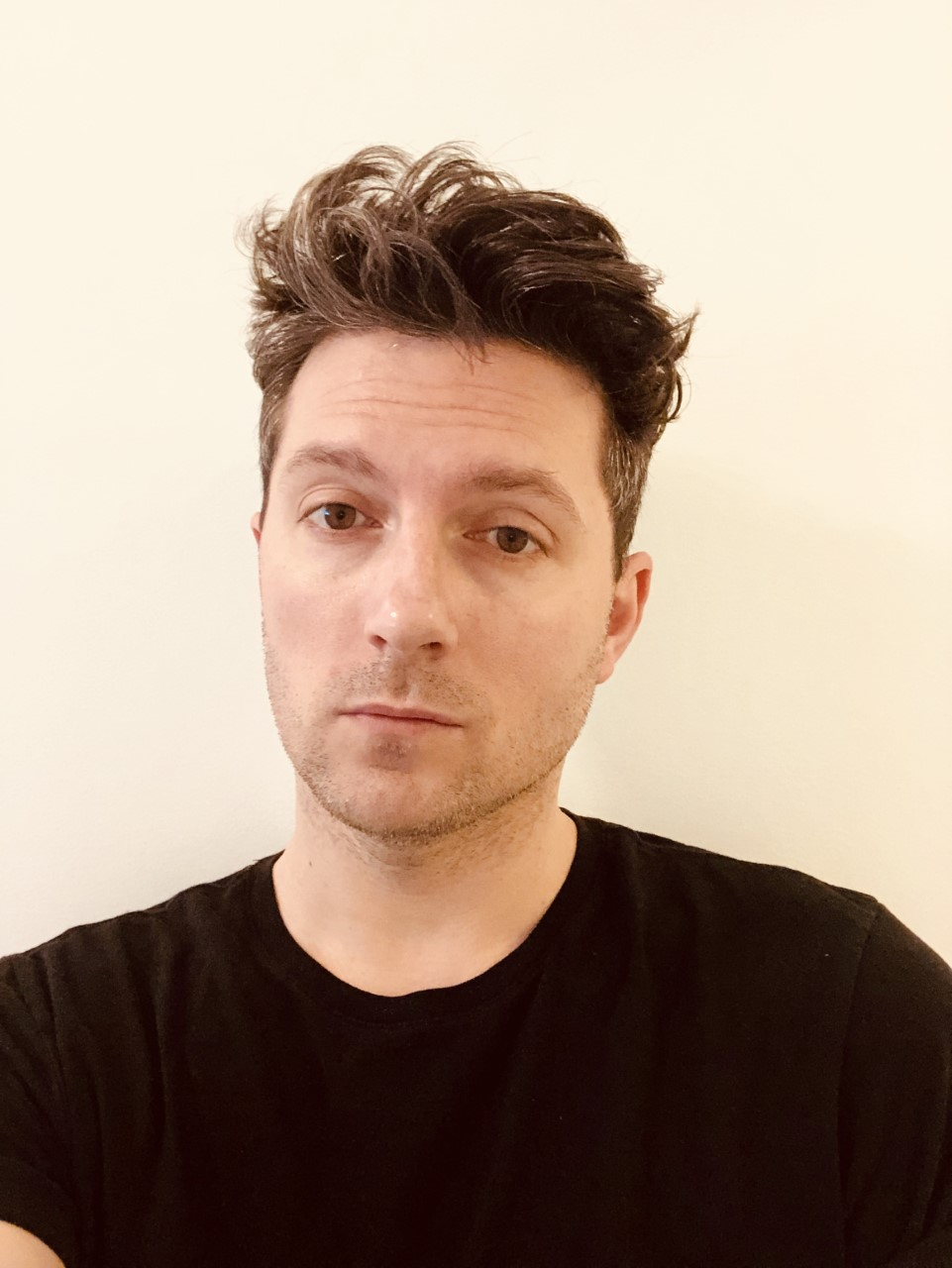
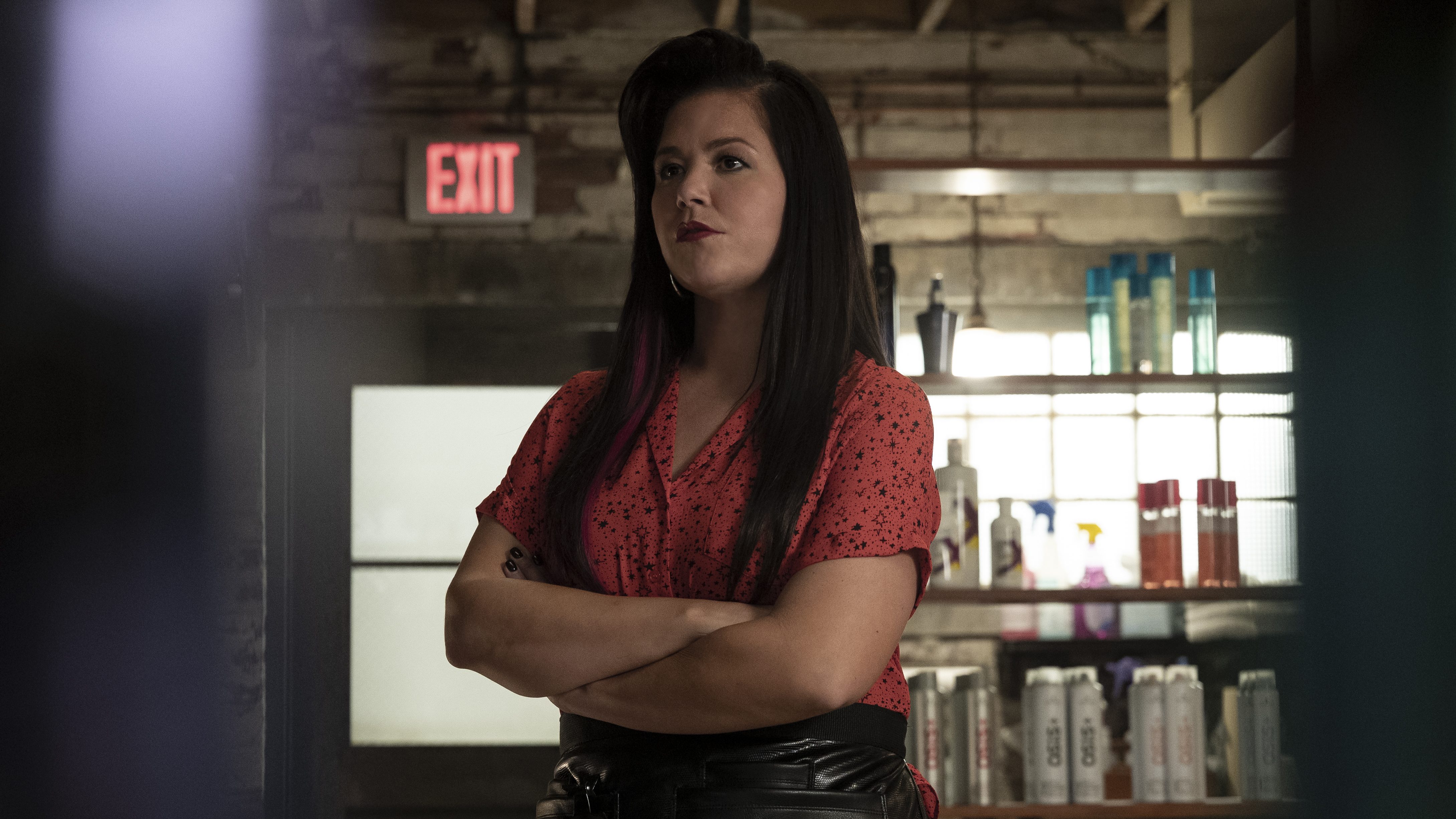
It’s always remarkable to talk to an actor who bears almost zero resemblance to their character. On AMC’s dark sitcom satire Kevin Can F**k Himself, Mary Hollis Inboden plays sullen, cynical tough girl Patty, the wisecracking foil to Annie Murphy’s type-A Allison. But Zooming in from a friend’s sunny LA garden, Inboden is the polar opposite of her character in almost every way. She’s as she is bubbly as she is thoughtful about the show’s complicated themes, ready to discuss thorny issues in her Arkansas twang.
“I was told by our brilliant dialect coach that I had the farthest to run,” she says of mastering Patty’s working-class Worcester accent.
On the show’s most recent episode, Patty’s world begins to fall apart. Kevin (Eric Petersen) banishes her from his group of friends, her boyfriend breaks up with her and her side hustle as a small time oxy dealer is beginning to catch up with her. Needless to say, Inboden had a lot to say about all of that.
The show is, of course, a satire of a certain type of network sitcom. Does Patty have a sitcom analogue that you’re aware of?
Carla from Cheers comes to mind—her relationship with Diane specifically. She’s pretty biting and bitter. We’re talking about a sitcom, we’re talking about sort of one-note people. Tropes; the idea that you can only be one thing, and those things never change because that’s what makes it so comfortable watching a sitcom.
People have compared your performance to Rosie O’Donnell. What do you make of that?
I’ve seen the Rosie O’Donnell comparison, and I’m completely flattered by that. I didn’t think about it until I started working on the accent, and in order to learn the accent I had to spend a lot of time looking at myself in the mirror. And with this dark hair, there’s a resemblance. I’m completely flattered. I think Rosie O’Donnell is incredible and still has one of my favorite talk shows of all time. But as long as we’re talking about it, Rosie O’Donnell would absolutely be the one who plays Patty [on a traditional sitcom], and she would be the one-note trope while she’s capable of so much more.
So, what notes are being added to your character in the scenes where she’s not in Kevin’s sitcom?
With Patty, there’s more than meets the eye. She’s such a hard shell on the outside, but really, we’re starting to realize why. And one of those reasons is, while she’s constantly hanging out with the boys and throwing out her quips, she’s the member of the club that’s attempted to keep her brother alive. When you think about Neal and his antics, this is a man who suffers no consequences, like Kevin, and Patty is the one who has to kind of make sure that problems get solved. I’m sure Patty keeps the lights on at their house next door. She’s the responsible one. So, when the women are able to step outside of Kevin’s universe, you find that [Patty’s] not really as tough as you would originally think.
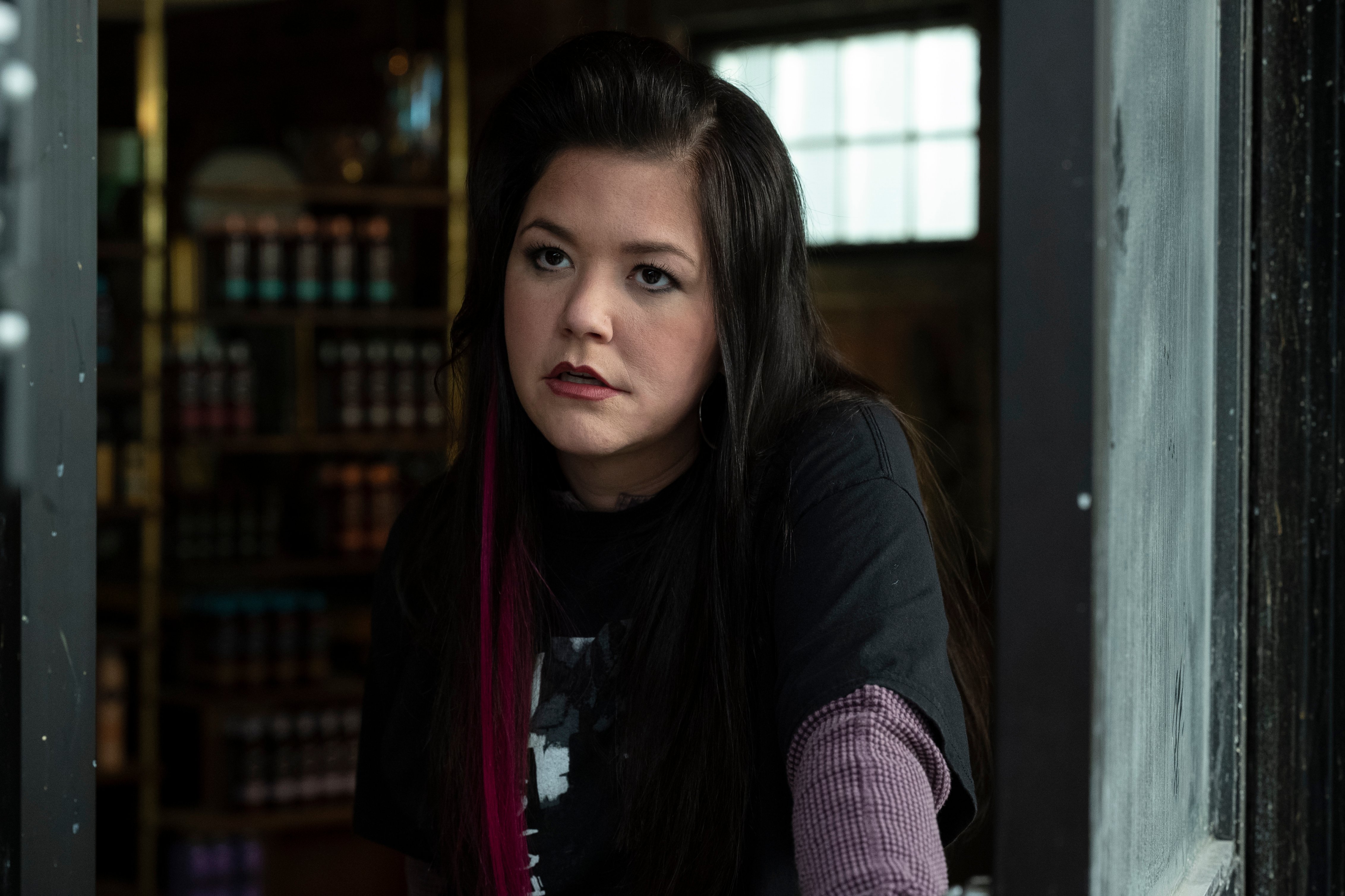
Why does she hang out with Kevin and co.?
I think it’s a lack of choice, honestly. She doesn’t wanna make a choice. It’s easy. They’re next door. She can sort of circulate there and make fun rather than participate, and she doesn’t really have to have an opinion about anything. She doesn’t want to be a girl like Allison. What that means to her is—they’ve decided that they have absolutely nothing in common, and really they do, because they’re two women circulating in this world. Allison’s constantly dreaming, and Patty is constantly pragmatic, and it’s not until they step outside that they realize that Patty can be the implementer of Allison’s dreams. And what a combo that is.
She has warmed to Allison over the past few episodes. Why do you think that is? What does she see in Allison now that she didn’t before?
Allison starts to make Patty think about a life beyond their two houses. And we know now that Patty has this secret life that has been fulfilling her that has nothing to do with Kevin. She keeps it to herself because it’s illegal, but also it’s something that makes her feel really good. Patty is dealing drugs and knows that that’s wrong, but also comes at it from a place of just wanting to help people out. You don’t see all the help that she provides [to Kevin and Neal], and really what she’s doing is being a fly on the wall just in case something goes wrong. When she steps outside, we realize that she’s got all these secrets. And then Allison comes along and she’s questioning Patty. You’re fine with things always staying the same? Patty’s actually not. She just doesn’t know a way out. Dreaming really scares a person like Patty. Dreaming means you’re stepping outside yourself and where you belong, and the shoe is always going to drop and it’s going to fall on your head. This is a woman who has suffered a lot of disappointments.
There’s a line in Episode 4, after Allison and Patty have been stopped by the cops, Allison says to Patty, “You just laughed at the way Kevin treated me for 10 years.” I feel like in that moment Patty is a stand-in for the audience, especially when she says, “It seemed harmless.”
It is, in fact, the thesis of the show. There’s one other line that Patty has in the pilot that was always so important to us: “Don’t tell Kevin I ratted him out. He got the mailwoman deported.” We slide right over it, but if you think about the serious implications of that… But the line that you’re talking about, when Annie and I were performing that, I remember thinking, Oh, my gosh! I’m changed. Mary Hollis won’t be able to watch one of these shows again without realizing that in a white male led sitcom, the butt of the joke most often is a female, a person of color or a gay person. And when we know better, we need to do better.
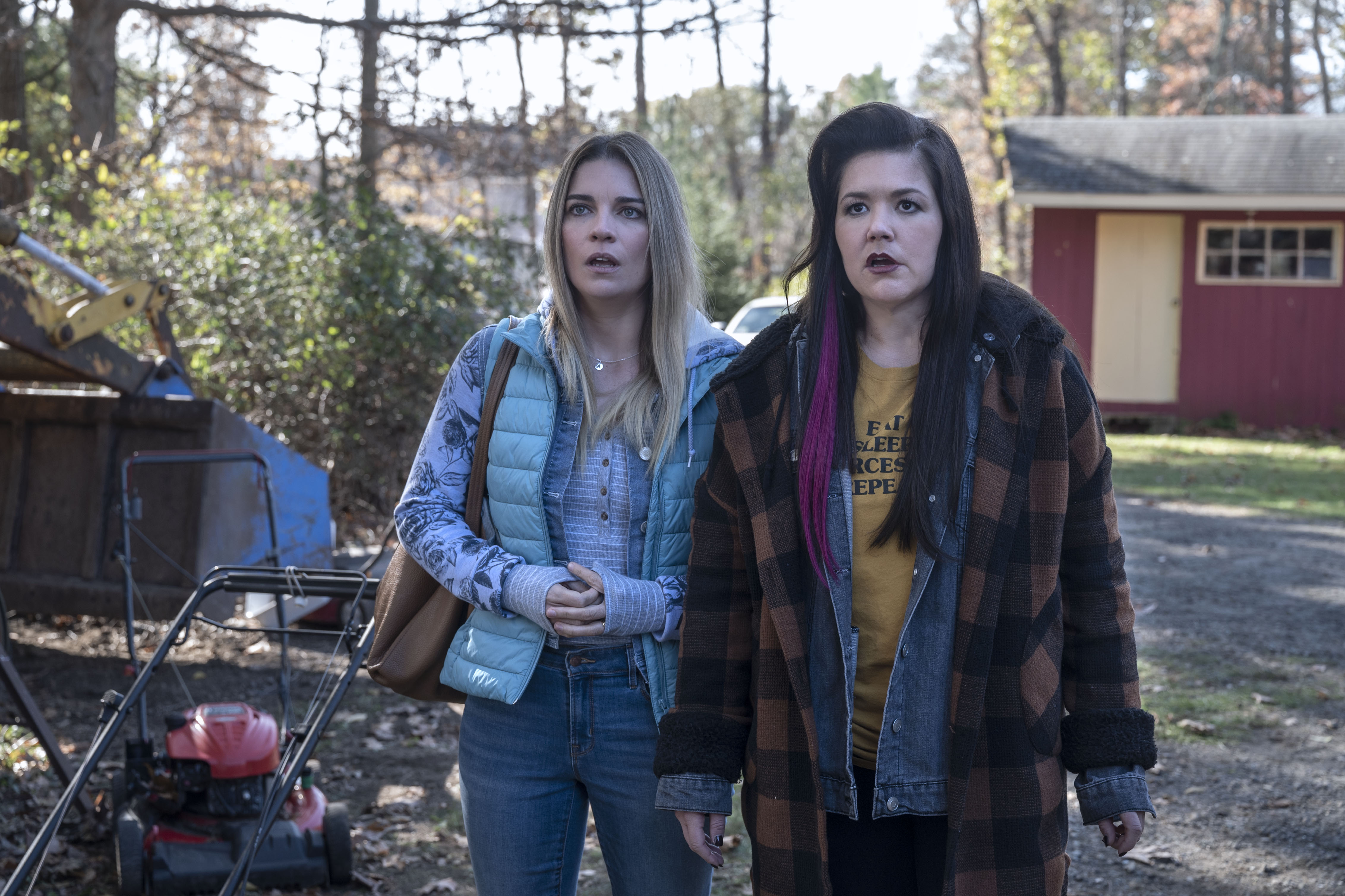
It’s interesting hearing you talk about Patty’s caretaker side, which I hadn’t really thought about. But I wonder now if that’s part of why Allison tells Patty about her plan to kill Kevin—because she knows on some level that Patty won’t let her do something so self-destructive.
I think Allison tells Patty that she’s gonna kill Kevin because at that point, after we see Kevin be so incredibly toxic and actually almost get Patty in trouble, they’re now in mutually assured destruction territory. A lot of people ask us, you know, Why not just leave him? Kevin, if we ever got to meet him in the single-cam scenes, is an abusive person. He is somebody who would not actually let her leave. And how does she leave? With $194 in her pocket? I think in that mode, Patty is able to be like, Ok, I’ll help you.
We talked earlier about thinking about the mailwoman joke, and there’s something similar in this most recent episode. Kevin kicks Patty out of their group and replaces her with “New Paddy.” That’s kind of a familiar sitcom storyline, but when you think about it, Kevin has told this woman that she’s replaceable, that her friendship means nothing to him.
Completely and quickly and in front of her, and we’re all laughing at it. And I want to be clear: sitcoms have a place. They’ve been around forever and I don’t think they need to go away! Those can be beneficial, especially in a stressful world.
But it’s worth reconsidering whose perspective these jokes come from and what messages are being put out there.
That’s right. Because for years and years, those writers rooms were made up of one type of person: white older gentlemen. I’m not on the attack about that. But we need many voices and we need representation.
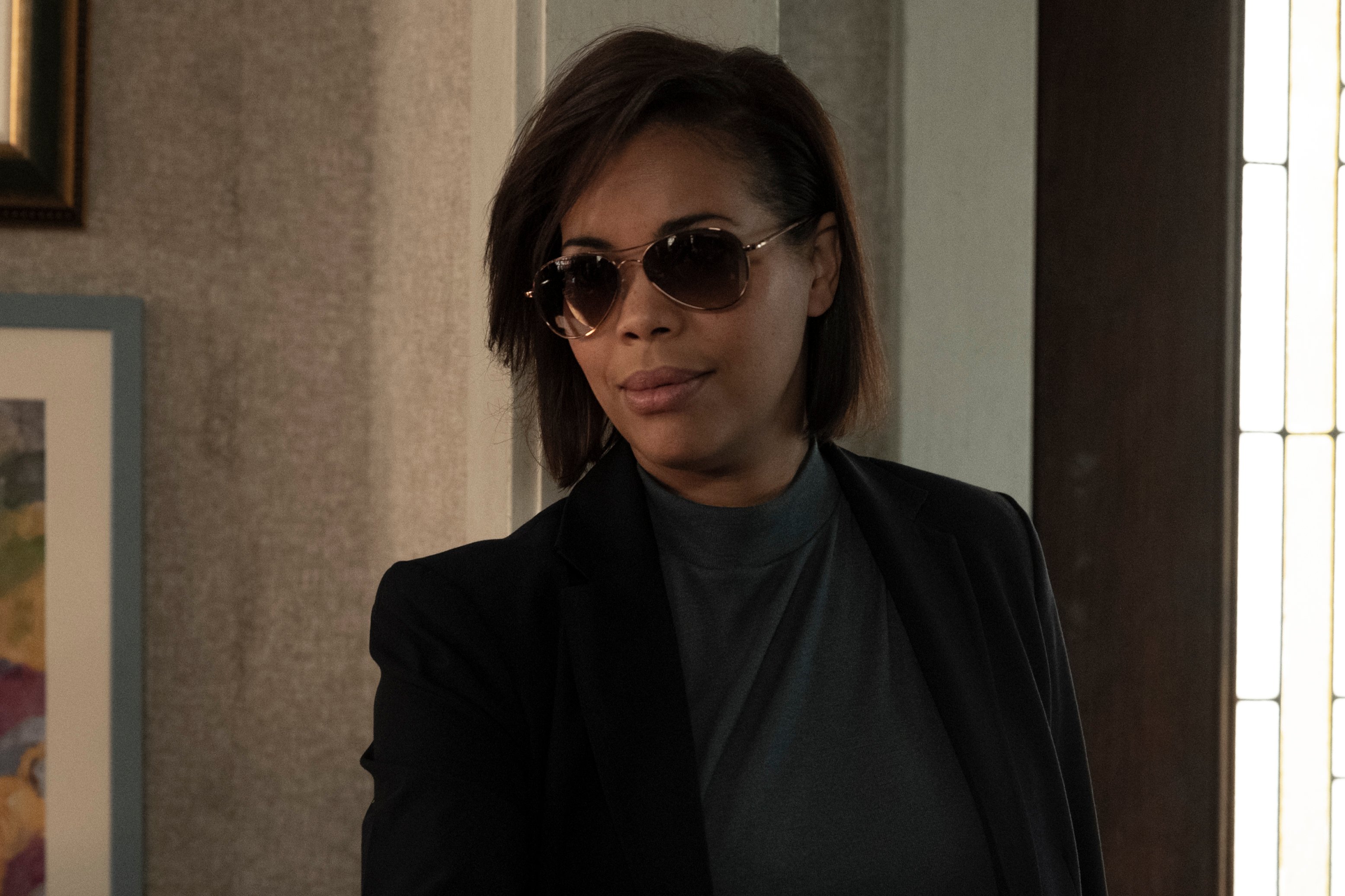
Is there a vibe between Patty and Detective Ridgeway? What’s going on there?
There is a vibe. But I think Patty is so scared that Detective Ridgeway is sniffing around—Detective Ridgeway might have a vibe, but at this point it’s safe to say that Patty is like, I have to do whatever you say so that I avoid trouble for me and my friend. There’s this tension, you’re not sure where this is gonna go. I think Patty’s sexuality, by Episode 5, we’re curious, we’re opening things up. Her boyfriend has broken up with her, so it’s leading her to ask a lot of questions of herself. That’s one thing that I really love about Patty. Again, in the multi-cam [scenes] you would never explore that. Her sexuality becomes so important to the single-cam world, really becoming the person that she wants to be instead of this sardonic trope.
I want to go back to something you said earlier about what Kevin would be like if we ever saw him in the single-cam scenes. I think I took it for granted that we never would, so I hadn’t thought about what he might be like outside of that sitcom version of reality. But in reality, that character could potentially be kinda scary.
So, I had a different take on it than Valerie Armstrong did. I thought these were men who would be, like, sexually assaulting people. And I think it’s actually far more powerful to think of these men as… Neal for instance: he somehow avoids paying his taxes. He is constantly up to shenanigans that put our house in danger. Kevin, I feel like he’s a really controlling and manipulative guy who gets what he wants.
Right, he doesn’t have to be literally physically abusive to affect the people around him in profoundly hurtful way.
Sure. Or even a thing where a woman is talking about her Me Too experience, and instead of getting the space to talk about that experience, the Kevin in the room will stand up and tell her what that experience was. I guess my first take on Kevin in the outside world was that he was incredibly abusive. Valerie’s was, yes, he’s controlling and manipulative, but he’s a guy that everybody will still be around because he’s very fun and he’s charming. He’s very well-liked.








